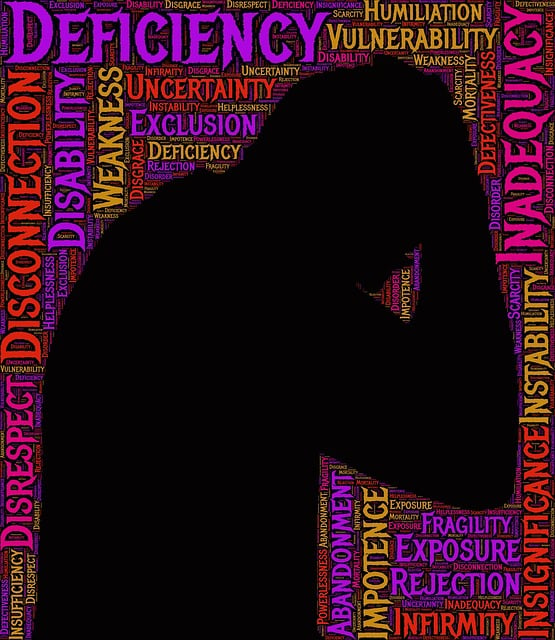Crisis intervention, a critical mental health support component, offers immediate assistance during severe or sudden distressing events. Parker Play Therapy, developed by Dr. John Parker, provides a unique approach using play as therapy for children and adolescents, helping them express themselves, work through trauma, and develop coping mechanisms. Integrated with mental wellness journaling exercises and risk management planning, this method enhances crisis intervention safety and effectiveness. Reducing stigma surrounding mental illness fosters supportive environments encouraging recovery without judgment. Parker Play Therapy techniques, combined with evidence-based practices, break intergenerational cycles of distress, promoting holistic well-being through immediate crisis support and long-term prevention strategies.
In times of crisis, effective intervention strategies are vital. This comprehensive guide explores crucial techniques to support individuals navigating mental health challenges. We delve into ‘Understanding Crisis Intervention’ as a foundational step, highlighting the unique benefits of Parker Play Therapy—a innovative approach focusing on mental well-being through play. Furthermore, we offer practical strategies for immediate assistance and long-term guidance, empowering professionals to provide comprehensive care.
- Understanding Crisis Intervention: A Brief Overview
- Parker Play Therapy: A Unique Approach to Mental Health Support
- Practical Strategies for Immediate Crisis Assistance
- Implementing Long-Term Guidance and Prevention Techniques
Understanding Crisis Intervention: A Brief Overview

Crisis intervention is a specialized area within psychology and mental health support, focusing on providing immediate assistance to individuals facing severe or sudden distressing events. It aims to help people manage and overcome crises, offering short-term relief while also equipping them with coping strategies for long-term resilience. This approach is crucial in various settings, from schools and workplaces to community centers and healthcare facilities.
Parker Play Therapy, a recognized therapeutic method, underscores the importance of understanding a person’s unique presentation during a crisis. By utilizing techniques that cater to different age groups and individual needs, mental wellness journaling exercises and guidance can be integrated into crisis intervention strategies. Additionally, risk management planning for mental health professionals is essential to ensure they are equipped to handle crises effectively while minimizing potential risks. Addressing the Mental Illness Stigma Reduction Efforts is also vital to creating a supportive environment that fosters recovery and encourages individuals to seek help without fear of judgment.
Parker Play Therapy: A Unique Approach to Mental Health Support

Parker Play Therapy offers a unique and innovative approach to mental health support, especially for children and adolescents. This therapeutic method, developed by Dr. John Parker, emphasizes the power of play as a tool for emotional healing processes. By creating a safe and nurturing environment, therapists facilitate a child’s natural ability to express themselves through play, allowing them to work through traumatic experiences, resolve conflicts, and develop coping mechanisms. This approach is particularly beneficial for those facing challenges such as anxiety, depression, or post-traumatic stress disorders.
The method focuses on the idea that play is not just fun but a serious business when it comes to understanding and addressing mental health issues. Through meticulously structured activities, therapists help individuals process their feelings, gain insights into their behaviors, and develop healthier ways of interacting with themselves and others. This holistic approach integrates Mental Health Awareness, encouraging children to explore and communicate their inner world while fostering self-awareness and emotional regulation skills. Additionally, Risk Assessment for Mental Health Professionals is a key aspect, ensuring the safety and well-being of both the client and the therapist during these sensitive interventions.
Practical Strategies for Immediate Crisis Assistance

In the heat of a crisis, immediate assistance is paramount. One effective approach, as endorsed by Parker Play Therapy, leverages emotional intelligence to create a safe and supportive space for individuals experiencing distress. Trained practitioners can use simple yet powerful communication strategies to foster open dialogue, actively listening without judgment and validating the individual’s feelings. This empathetic exchange forms a crucial foundation for addressing the crisis.
Following initial de-escalation, structured mental wellness journaling exercises guidance can provide valuable insights into triggers and coping mechanisms. Encourage individuals to express their thoughts and emotions through writing as a therapeutic outlet. This introspective practice complements play therapy techniques, offering a holistic approach that caters to both the mind and spirit, ultimately enhancing crisis intervention effectiveness.
Implementing Long-Term Guidance and Prevention Techniques

Implementing long-term guidance and prevention techniques is a vital component of crisis intervention strategies. Drawing from evidence-based practices like Parker Play Therapy, professionals can foster resilience in individuals facing acute or chronic stress. This approach leverages the power of play to help children and adults process emotions, develop coping mechanisms, and build healthy relationships, thereby breaking intergenerational cycles of distress.
Integrating these strategies into broader Mental Health Policy Analysis and Advocacy efforts ensures systemic support for those in crisis. By promoting Mind Over Matter principles, where individuals are empowered to reframe challenges as opportunities for growth, communities can cultivate a culture that prioritizes mental well-being. This holistic approach not only addresses immediate crises but also equips individuals with tools to navigate future stressors effectively.
In conclusion, crisis intervention strategies play a vital role in supporting individuals through challenging times. By combining theoretical knowledge with practical techniques, such as Parker Play Therapy, we can offer effective and compassionate assistance. Immediate crisis support is crucial, but long-term guidance and prevention methods are essential for fostering resilience and well-being. Implementing these strategies, as outlined in this article, enables us to create a more supportive environment, ultimately enhancing mental health outcomes.














